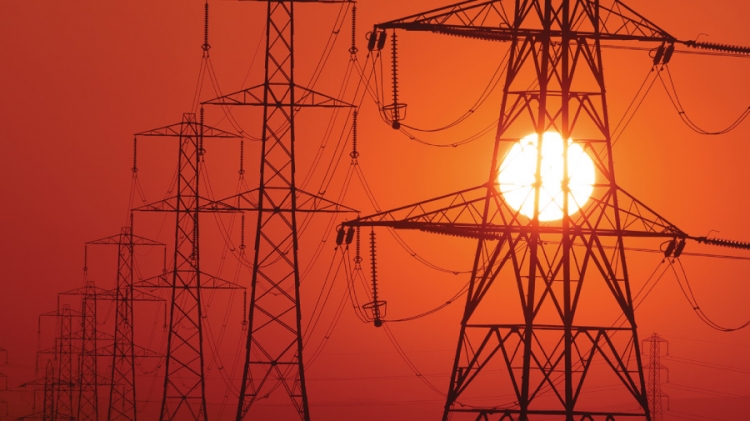
Although sources of energy are evolving, the power grid systems used to deliver and manage electricity have not kept up with the evolution. In many ways, the grid systems in use today are not able to efficiently integrate renewable energy sources. Without the appropriate infrastructure to carry and manage the distribution of such energy, we will not be able to reach our collective sustainability goals. The future where energy is clean, efficient, and affordable cannot become a reality without further research and development. This is why the Masdar Institute of Science and Technology, which started academic classes in 2009 as a centrepiece of the Abu Dhabi government’s Masdar initiative, is focusing on smart power grids. In order to fully benefit from these diverse, vast, and renewable energies, researchers must devise ways to make their use widespread and economically viable.
To make an efficient, affordable shift from unsustainable fuels to renewable sources of power, we must develop intelligent devices that can manage renewable resources in a smarter way. The development of such information technologies is challenging, as there are so many people and stakeholders in the system, all of whom have many different wants and needs. However, with the help of the information technologies that my team and others at the Masdar Institute are researching, we hope to help make renewable power affordable and convenient.
One of the issues we are working on addressing in the creation of smart power grids is how to manage the fluctuations in power that tend to come with renewable energy. For instance, wind energy is available only when you have a constant breeze. Wave energy depends on the tides. And solar can be collected only in the day. Yet we need to be able to capitalise on these renewable energies, especially solar. Solar power is widely considered one of the most readily available sources of energy, and we have abundant access to sunlight. The amount of sunlight that reaches the Earth on a daily basis is more than 200,000 times the total electricity that mankind generates.
It is also one of the most powerful energy sources, with huge potential, which is demonstrated by Masdar’s recent investment in the 100 megawatt Shams 1, the world’s largest concentrated solar power plant, the first of its kind in the Middle East. So what do you do? Tell someone they can have electricity only when it is readily available (for example, only when the sun is shining)? That is unrealistic. One commonly cited potential solution to this problem is to vary electricity prices according to the ebb and flow of demand. In this way, people have the option of deciding when to use electricity, but are encouraged to use it when it is more readily available. For instance, when the renewable energy supply is high, electricity prices would be low. When the supply of renewable energy is low, such as in the evenings, when the grid has to be powered by conventional energy sources, customers would pay more for their electricity.
The challenge is that these fluctuations can happen quickly and unexpectedly throughout the day. Since the average person or entity does not want to have to think about these changes, intelligent information technologies can be used to automatically manage energy consumption and pricing. For example, each customer, be it a homeowner of business, could use a device that automatically determines when to schedule electricity usage in a way that reduces costs while satisfying their power needs. This would allow each entity in the grid to respond to immediate fluctuations in price without requiring unrealistic efforts from individual customers.
But how do we create such a device, one that people can programme to satisfy their individual needs while interacting effectively with everything that affects the system from the outside? This is a complicated problem. In collaboration with researchers at the Massachusetts Institute of Technology, my research laboratory is developing and analysing robust control and learning algorithms for smart power grids. Intelligent devices can use these algorithms to determine when to schedule electricity loads given a user’s individual needs and preferences and the state of the grid at the time. In essence, devices can self-adapt based on user input and experience. If these algorithms are successful, devices that employ them will “think for you” so that your energy needs and wants will be satisfied. Additionally, such devices would increase the reliability and stability of power grids despite fluctuations in electricity generation from renewable energy sources.
The development of learning and control algorithms for smart devices is especially difficult, because they must scale well to larger and larger power grid networks. Not only will the clean-tech cluster Masdar City – and subsequently Masdar Institute – be powered with renewable energies, but we believe that in the not-too-distant future most, if not all, cities will need to use, at least partially, sustainable energy sources. However, the larger the network, the harder it is to manage what is going on. At the Masdar Institute, we are seeking to develop techniques that would scale up to these larger networks and, perhaps, one day be part of every electricity network in the UAE.
Researching smart power grids will definitely contribute to Abu Dhabi’s sustainability goals. It is an important piece of the renewable energy puzzle, one that we are proud to be working on.
Dr. Jacob Crandall is an assistant professor in computing and information science at the Masdar Institute of Science and Technology
http://www.thenational.ae/news/uae-news/science/masdars-plan-for-smart-power